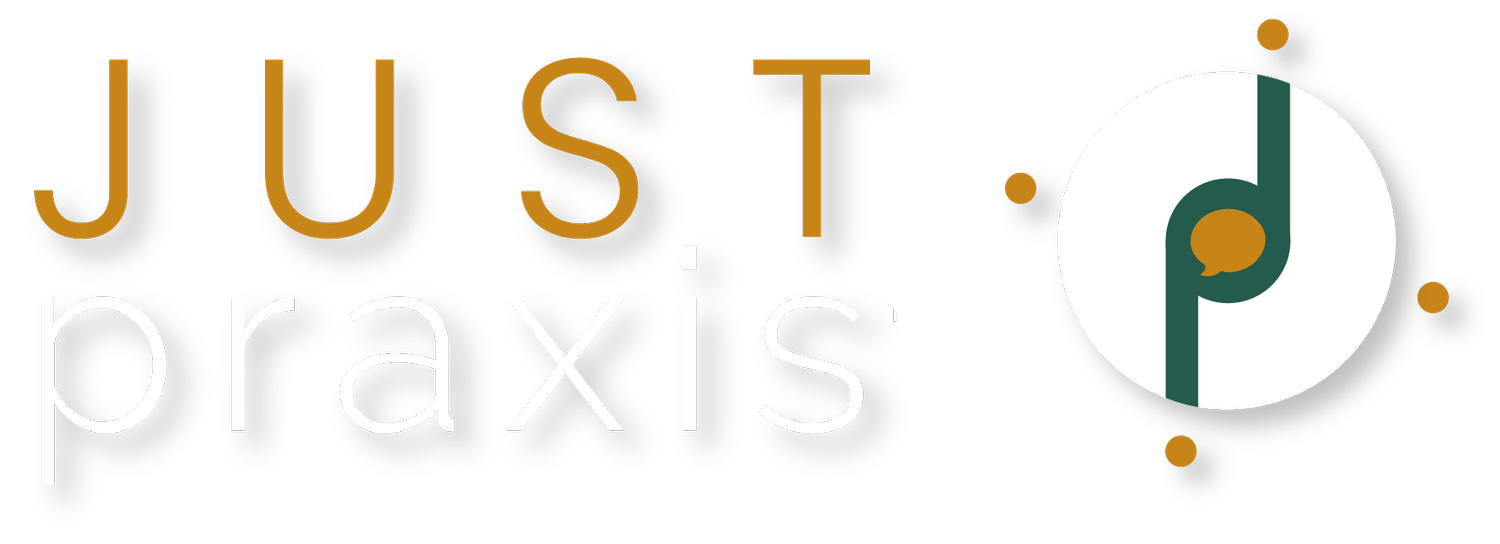The Genesis of the TIP Community of Practice
We first met in November 2022 in Myrna McCallum’s course, Re-envisioning Our Roles: Trauma-Informed Justice. The course was a virtual offering, so we didn’t have an opportunity to interact in person. Nevertheless, right away, it felt like every participant was united in a belief that our systems of “justice” (yes, those quotes are intentional!) are often more harmful than helpful. It also felt like every participant had a desire to contribute to positive change and to be part of something bigger than themselves.
After the course ended, Monica started to mull over the idea of starting a community of practice for those who were committed to integrating trauma-informed approaches in their work. She put the idea out there in a WhatsApp group that Myrna had created for course participants. Susan immediately reached out to offer support, and shortly thereafter, the Trauma-Informed Practice Community of Practice (which we quickly abbreviated to the “TIP CoP” :)) was born!
The inaugural meeting of the TIP CoP was February 28, 2023. We were really excited about it, but also trepidatious:
Would anyone actually show up?
Would participants be familiar with the concept and purpose of a “community of practice”?
Would people be disappointed that we weren’t offering a lecture or CPD-style presentation?
Would the TIP CoP actually make a difference? Would it even matter?
Over the past year, we have learned A LOT that we are excited to share with the broader legal community and beyond. But before we get into the who/what/how of the TIP CoP, we want to stress why this matters so much.
In November 2023, we attended the CBA’s Conference on Well-Being in Toronto. Not only was this our first opportunity to meet with each other in person (Susan is based in Edmonton and Monica is based in Ottawa), but it was our chance to connect with others in the legal field who are very concerned about the crisis in lawyer well-being across the country.
Over those two days, we learned more about the National Study on the Psychological Health Determinants of Legal Professionals in Canada. The findings of this comprehensive study are almost bewildering:
Out of a group of over 6600 legal professionals, 59.4% reported experiencing psychological distress.[1]
24.4% of a group of over 5800 legal professionals reported experiencing suicidal ideation.[2]
55.9% of lawyers report experiencing burnout.[3]
The study further reported the following as the greatest work-related risk factors to the mental health of legal professionals in Canada:
Emotional demands
Job insecurity
Hours worked
Quantitative overload (i.e. a workload that is too high)[4]
Emotional demands in particular were linked to compassion fatigue and “secondary traumatic stress” (i.e. vicarious trauma), which were reported by 56.2% and 26.8% of participants, respectively.[5] It might be unsurprising that over 70% of legal professionals in criminal justice, child and youth law, and family law reported experiencing high emotional demands. However, it might catch some readers off guard that over 50% of study participants in insolvency law, insurance law, real estate and administrative law also reported the same.
In our view, these findings drive home the critical importance of recognizing the link between trauma, the emotional demands experienced by most legal professionals, and the need to do something about it. Yes, the study found that certain protective factors (autonomy over one’s practice and consistency of one’s values with the broader workplace) can have a significant ameliorative impact on burnout. However, it is clear we need interventions that are targeted to the most severe risk factors to see meaningful and lasting change.[6]
The more legal professionals learn about the nature and realities of trauma, how it might show up at work, in courtrooms, in boardrooms, etc., and how the practice of law can cause and exacerbate trauma, the better. But to really “get it,” individuals need support to translate theory to everyday practice, reflect on the results, make adjustments and try, try again. It is an ongoing and iterative process, and one that we think is best done in community for a whole host of reasons. And it is that belief in particular which led to the creation of the TIP Community of Practice.
Monica Chohan & Susan O’Neil
Founders of justpraxis.com
[1] “Psychological distress” is defined in the study as “[a]n unpleasant subjective state that combines a set of physical, psychological and behavioral symptoms which cannot be attributed to a specific pathology or disease. These symptoms, such as fatigue, irritability, concentration problems, anxiety or insomnia, are sometimes similar to depression and sometimes to exhaustion.” P. 27
[2] P. 40
[3] P. 48
[4] P. 70
[5] P. 140.
[6] P. 73-75.

